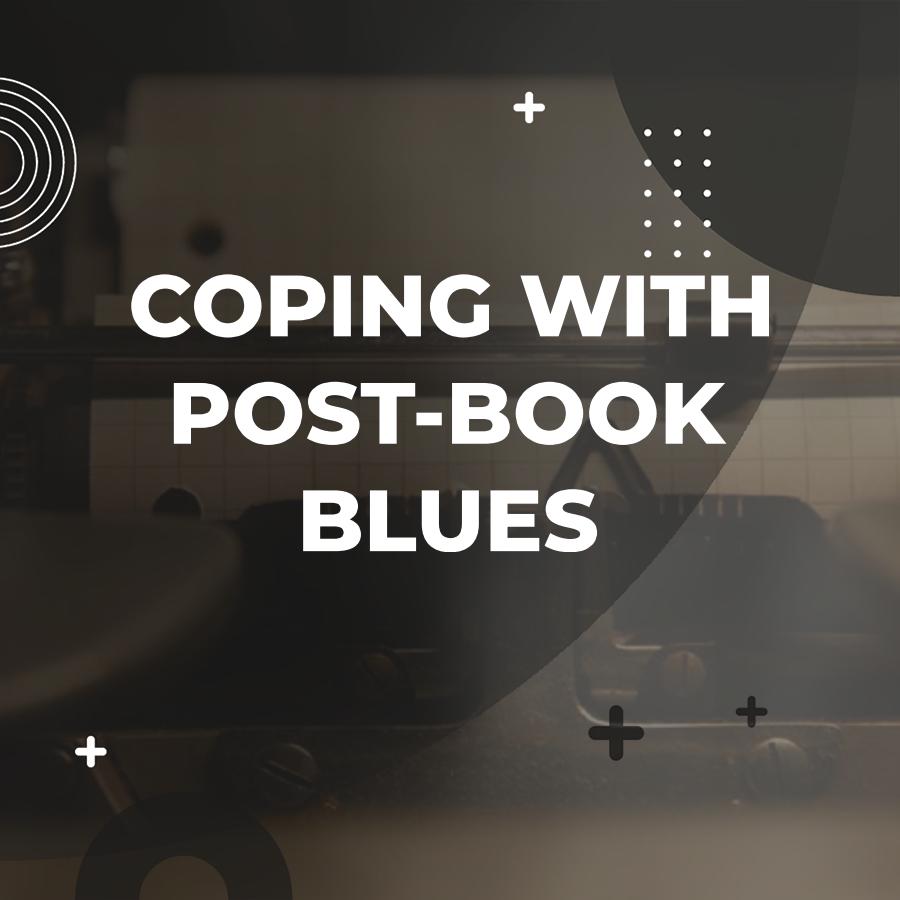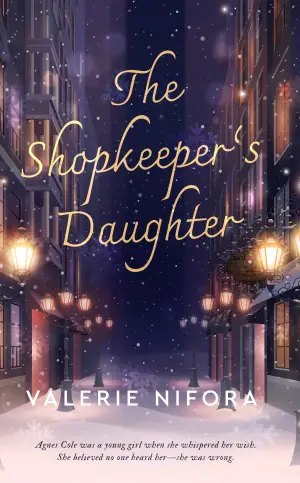Post-book depression, often affectionately dubbed “book hangover,” occurs when readers experience a sense of loss or sadness after finishing a book that profoundly affected them. This feeling arises from the emotional investment made throughout the reading journey, leading to a struggle in transitioning back to reality. While it may seem trivial at first glance, recognizing and addressing this phenomenon can enhance your reading experience and overall well-being.
The immediate answer to dealing with post-book depression is simple: allow yourself to feel the emotions and seek out new stories that resonate with you. By acknowledging the experience and finding ways to re-engage with literature, readers can navigate this emotional landscape more effectively.
Table of Contents
Recognizing the Signs of Post-Book Depression
To address post-book depression, one must first recognize its signs. Common symptoms include:
- Sadness or Melancholy: You might feel a lingering sadness after finishing a book that you loved. This feeling isn’t just sadness; it’s the result of your emotional bond with the characters and the world they inhabit.
- Restlessness: After finishing the book, staying engaged with new tasks or feeling happiness in other things can become a challenge. This restlessness can lead to an increased urgency to read again, even if you’re unsure of what to pick up next.
- Nostalgia: Specific scenes, quotes, or the overall journey that the book took you on replay in your head, enhancing the sense of loss.
- Inability to Connect with Other Stories: After a powerful read, other books may seem lackluster in comparison. This situation can lead to frustration as you search for something that ignites those same feelings.
The Root Causes of Post-Book Depression
Several factors contribute to the onset of post-book depression.
1. Sudden Change in Emotional Engagement
Books send readers on an emotional rollercoaster, and feelings can skyrocket during intense moments. When that emotional high disappears, readers may feel disoriented or dissatisfied.
Consider Suzanne Collins’ The Hunger Games series. Katniss’s triumphs and struggles evoke a strong emotional response, stirring intense emotions that linger after the story. The strong connection throughout her experience leads to a tough time adjusting once the last page turns.
2. Loss of Companionship
Characters in well-written stories often feel like friends. After finishing a beloved series, readers may feel a sense of loneliness.
For instance, if you’ve spent hundreds of pages with a character like Elizabeth Bennet from Pride and Prejudice, it’s natural to miss her wit and charm. The absence of those familiar voices can feel like losing an actual companionship.
3. Incomplete Exploration
Some narratives leave readers with unanswered questions or unresolved plot points, which can exacerbate feelings of discontentment.
Consider the intricate world-building in George R.R. Martin’s A Song of Ice and Fire series. After delving into a multitude of characters and plots, fans often find themselves yearning for more detail, which causes frustration when they finish the book.
The Emotional Connection with Characters
One significant reason post-book depression occurs is the deep emotional connection readers develop with characters. This bond can be so intense that when the story concludes, readers may feel as if they’ve lost a friend or left behind a cherished world.
A Real-World Example
Consider a reader who has just finished The Night Circus by Erin Morgenstern. The enchanting world of the circus, with its rich descriptions and captivating characters, may leave them feeling exhilarated while also melancholic upon turning the last page. The emotions tied to Celia and Marco’s enchanting yet tragic love story stay fresh in the reader’s mind, making it challenging to find a new book that captivates them in the same way.
The Impact of Genre on Post-Book Depression
Different genres can evoke different responses in readers, which can influence the intensity of post-book depression.
Fantasy and Sci-Fi: A Deeper Dive
In genres like fantasy and science fiction, readers often immerse themselves in vast worlds filled with intricate lore and compelling adventures. The stakes are high, and if a story delivers a satisfying conclusion, the aftermath can leave a strong impression. For example, finishing The Lord of the Rings may leave a reader feeling as though they’ve completed an epic journey, only to return to the monotony of everyday life.
Romance: The Heart’s Tug
On the other hand, romance novels often leave readers yearning for the emotional resolutions they experience through their favorite couples. Closing a sorrow-filled romance can leave some readers feeling empty, as if a chapter of their own story vanished, and finding another book with the same thrill can become challenging.
Coping Mechanisms for Post-Book Depression
Navigating post-book depression requires action. Here are several coping strategies to ease the transition:
Embrace Your Emotions
Allow yourself to feel sad or nostalgic. Instead of rushing to the next book, take time to process what you’ve just read. Journaling can be an effective way to articulate your feelings. Write down your thoughts about the book, key takeaways, or even a hypothetical sequel. Allow these reflections to exist without judgment.
Shift Your Focus to Audiobooks
If you find it difficult to dive into another book right away, try switching to audiobooks. This shift in format can make it easier to move on from a previous story. Audiobooks can breathe new life into stories, as different narrators provide unique takes on characters and events.
Participate in Book Discussions
Join a book club or online reading forum where the discussion revolves around your recently finished book. Sharing thoughts and feelings with others who’ve experienced the same narrative can validate your emotions and introduce new perspectives about the story.
Explore Related Content
Dive into content that expands on the themes or characters of your finished book. Look for fan fiction, author interviews, or related non-fiction that elaborates on similar topics. Engaging with this supplementary material can provide comfort and satisfaction in exploring familiar narratives.
Revisit Old Favorites
Sometimes, a sense of familiarity can help ease the pain of book depression. Revisit beloved books that you’ve read before, allowing you to reconnect with the worlds and characters that brought you joy. This nostalgia can act as a balm to heal the heart until you’re ready to embark on new literary adventures.
Discovering New Titles
Once you’re ready to jump back into the reading world, finding new titles that might resonate with you is essential.
Recommendations Based on Your Last Read
Check out reading recommendation sites or apps that suggest books based on what you’ve just finished. Many readers find it helpful to pursue books that align with their current interests or themes, making the transition easier.
Seek Out Different Genres
Sometimes, stepping outside your comfort zone is necessary. Try exploring a different genre than the one that triggered your post-book depression. If you typically read fiction, consider diving into non-fiction biographies or essays. A slight change may reignite your passion for reading without triggering those heavy feelings of loss.
The Community’s Role
When dealing with post-book depression, the literary community can play a crucial role in healing.
Connect with Fellow Readers Online
Utilize social media platforms to engage with fellow book lovers. Discuss a book’s impact, then watch how others respond to those thoughts. The shared understanding that exists within the reading community can be comforting.
Engage with Bookstagram and BookTube
Visual platforms like Instagram and YouTube are full of content that focuses on book reviews, recommendations, and discussions. Connecting with book influencers or fans can attract you to new books while also validating your emotional response to the literature you’ve just enjoyed.
Personal Stories of Overcoming Post-Book Depression
Many readers have shared personal anecdotes about overcoming post-book depression.
A Reader’s Journey
One avid reader on a popular book forum recounted their experience after finishing A Little Life by Hanya Yanagihara. They described feeling emotionally drained, citing the profound connections they formed with the characters. Instead of rushing into a new book, they gave themselves time to reflect. They also found solace in writing a letter to one of the characters, expressing their feelings of loss, empathy, and hope. This unique approach fostered healing and allowed the reader to make a rewarding return to reading.
The Power of Recommendations
Another reader shared that after finishing The Goldfinch by Donna Tartt, they found themselves clamoring for something that could match its emotional depth. After chatting with friends and reading recommendations, they picked up The Secret History, a different book by the same author. It allowed them to stay in the same emotional landscape while discovering new themes and characters, effectively easing the sting of their previous literary experience.
Additional Information
Post-book depression, or the feeling of sadness after finishing a favorite book, comes with some surprising secrets that many readers may not realize.
- Physical Symptoms: It’s not just emotions at play; readers often experience physical symptoms such as fatigue or anxiety after finishing a book they loved.
- Book Hangover: This term isn’t just a catchy phrase; it describes a genuine state where the mind craves the world and characters of a book, similar to withdrawal symptoms.
- Changes in Routine: Many readers develop a routine around their books. A sudden change in that routine can lead to feelings of emptiness.
- Character Attachment: Readers often form deep attachments to characters. This connection prompts feelings similar to loss once the story concludes, as if losing a friend.
- Social Connection: Many people use books as a way to connect with others. Finishing a book can create a social void if no one else has read it or if discussions cannot happen.
- Resisting Reality: Some readers turn to other media, such as fan fiction or adaptations, to prolong their experience with a beloved story.
- Overwhelm of Choices: After finishing a book, the abundance of other reading options can lead to a feeling of being overwhelmed, making it hard to choose the next one, which can contribute to feelings of emptiness.
- Reflection Period: Post-book depression can open a time for personal reflection, leading to insights about one’s life and emotions, but that process can also feel like facing a daunting void.
- Creative Outlet: Writing fan fiction or starting a blog about a beloved book can be a way to channel post-book depression into a creative output.
- Share Your Feelings: Discussing the book, sharing feelings with others well-versed in literature, or even joining a book club can help ease the transition from one book to another.
Frequently Asked Questions (FAQs) Related to Post-Book Depression
Q. What is post-book depression?
A. Post-book depression is the feeling of sadness or emptiness that some readers experience after finishing a book they loved. It often happens when you form an attachment to the characters or the story.
Q. Why do people feel post-book depression?
A. People may feel post-book depression because they invested emotionally in a story. When it ends, there’s a sense of loss, like saying goodbye to a friend.
Q. Is post-book depression a common experience?
A. Yes, many readers experience it, especially after finishing a particularly engaging or emotional book. It’s a sign that the book made a significant impact.
Q. How long does post-book depression usually last?
A. The duration varies. For some, it might last a few days, while for others, it could linger for weeks. It depends on how deeply the book affected them.
Q. What can I do to cope with post-book depression?
A. To cope, you could read another book, discuss the story with friends, or write your thoughts about the book. Engaging with related content can help.
Q. Are particular genres more likely to cause post-book depression?
A. Emotional genres, such as romance, fantasy, or literary fiction, tend to elicit stronger feelings. Books with deep character arcs or tragic endings may also trigger this response.
Q. Does everyone experience post-book depression?
A. Not everyone does. Some readers may move on quickly to the next book without feeling much sadness, while others might struggle to transition.
Q. Can post-book depression be a good thing?
A. Yes, it shows that the book resonated with you and left an impression. It reflects the power of storytelling and emotional connection with literature.
Q. Should I worry if I feel depressed after finishing a book?
A. Feeling sad after finishing a book is normal and usually harmless. However, when those feelings start to disrupt daily routines, speak to someone about it.
Q. How can I find books that might make me feel more joy rather than sadness?
A. Look for genres or authors you know have uplifting or humorous themes. Happy endings and lighthearted stories can help balance out those heavier reads.
Conclusion
Post-book depression is a real phenomenon that many readers experience after finishing a captivating book. It can leave you feeling empty or even a bit lost without those beloved characters and their journeys. Recognizing this feeling is the first step toward overcoming it. Consider diving into another book, discussing your favorite reads with friends, or even re-reading a cherished classic. Embrace the emotional connection that literature brings, and remember that it’s perfectly normal to feel a little blue when the story ends. The next adventure is just a page away!







